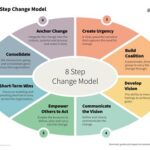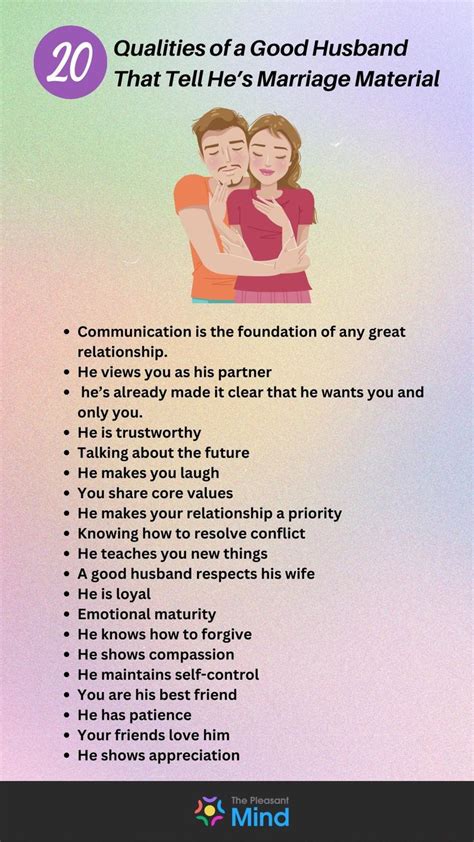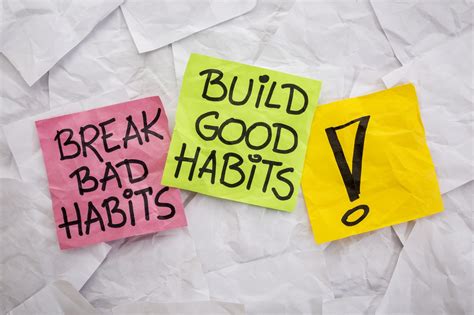
Women over 40 are increasingly vocalizing what they are “done” with, ranging from societal expectations and beauty standards to outdated relationship dynamics and professional pressures, embracing a newfound sense of freedom and self-acceptance.
Many women over 40 are reaching a point of liberation, shedding the burdens of societal expectations and embracing authenticity. A recent wave of online discussions and personal essays highlights the growing sentiment among this demographic of being “done” with various aspects of life, from restrictive beauty standards to draining relationships and unfulfilling professional obligations. This collective declaration reflects a shift towards prioritizing personal well-being, self-acceptance, and genuine happiness.
The impetus behind this movement stems from years of navigating societal pressures, career demands, and personal relationships, often at the expense of individual fulfillment. As women enter their 40s and beyond, they often experience a reevaluation of their priorities, leading to a desire to shed the unnecessary weight of expectations and embrace a more authentic existence. This shift is characterized by a newfound clarity and confidence to say “no” to things that no longer serve them and to actively pursue passions and interests that bring joy and meaning to their lives.
One of the most prominent areas where women over 40 are expressing their liberation is in relation to beauty standards. The pressure to maintain a youthful appearance, conform to specific body types, and adhere to ever-changing trends has long been a source of stress and anxiety for many women. However, a growing number are rejecting these unrealistic expectations and embracing their natural aging process. They are choosing to focus on health and well-being rather than chasing an unattainable ideal. This rejection of conventional beauty standards is often accompanied by a celebration of individuality and a willingness to experiment with personal style, free from the constraints of societal norms.
Another significant aspect of this movement involves reevaluating and redefining relationships. Many women are “done” with relationships that are draining, unsupportive, or unequal. This includes romantic partnerships, friendships, and even family dynamics. They are prioritizing relationships that are based on mutual respect, understanding, and genuine connection. This often involves setting boundaries, communicating needs clearly, and ending relationships that are no longer serving their well-being. The focus is on creating a support network of individuals who uplift and empower them, rather than those who bring them down.
Professionally, women over 40 are also making significant changes. Some are leaving unfulfilling jobs to pursue their passions, while others are demanding better treatment and opportunities in their current workplaces. They are “done” with being undervalued, overlooked, or discriminated against. This often involves advocating for themselves, seeking promotions or raises, and even starting their own businesses. The goal is to find work that is meaningful, challenging, and rewarding, and to be recognized and compensated for their contributions.
The trend of women over 40 declaring what they are “done” with is not simply a fleeting moment; it represents a fundamental shift in attitudes and priorities. It is a testament to the growing power of women to define their own lives and to live authentically, free from the constraints of societal expectations. This movement is empowering other women to do the same, creating a ripple effect of self-acceptance, liberation, and genuine happiness.
Key Areas of Liberation:
- Beauty Standards: Rejecting unrealistic expectations and embracing natural aging.
- Relationships: Prioritizing healthy, supportive connections and setting boundaries.
- Professional Life: Seeking meaningful work and demanding fair treatment.
- Societal Expectations: Challenging traditional roles and embracing individuality.
- Guilt and Self-Doubt: Cultivating self-compassion and celebrating accomplishments.
In-Depth Analysis:
The decision for women over 40 to declare what they’re “done with” is not a spontaneous occurrence but rather the culmination of years of experience, self-reflection, and a growing awareness of their own needs and desires. It’s a process driven by several factors, including:
-
Increased Self-Awareness: As women mature, they often gain a deeper understanding of themselves, their values, and their priorities. They become more attuned to what truly brings them joy and fulfillment, and less willing to compromise on these aspects of their lives. This heightened self-awareness allows them to identify and address the things that are holding them back from living authentically.
-
Reduced Societal Pressure: While societal expectations still exist, women over 40 often feel less pressure to conform to them. They may have already achieved certain milestones, such as marriage, motherhood, or career success, and feel less compelled to follow traditional paths. This newfound freedom allows them to make choices based on their own desires, rather than the expectations of others.
-
Empty Nest Syndrome: As children grow up and leave home, women may experience a shift in their roles and responsibilities. This can create an opportunity to reevaluate their lives and pursue interests and passions that were previously put on hold. The empty nest can be a time of rediscovery and reinvention, as women explore new hobbies, careers, or relationships.
-
Menopause: The hormonal changes associated with menopause can also contribute to a sense of liberation. Some women report feeling more assertive, confident, and less concerned with pleasing others during this time. This can empower them to speak their minds, set boundaries, and prioritize their own needs.
-
Increased Longevity: With advancements in healthcare and increased life expectancy, women are living longer and healthier lives than ever before. This gives them more time to pursue their goals and dreams, and less tolerance for things that are not serving them. They are more likely to prioritize experiences and relationships that enrich their lives, rather than focusing on material possessions or societal approval.
-
Social Media Influence: Social media platforms have played a significant role in amplifying the voices of women over 40. Online communities and forums provide a space for women to share their experiences, connect with like-minded individuals, and find support and encouragement. This online solidarity empowers women to challenge societal norms, embrace their individuality, and live more authentically.
Examples of What Women Are “Done” With:
To provide a more concrete understanding of what women over 40 are declaring they are “done” with, here are some specific examples:
-
People-Pleasing: Many women report feeling pressure to constantly please others, often at the expense of their own needs and desires. They are “done” with saying “yes” when they really want to say “no,” and are learning to prioritize their own well-being.
-
Toxic Friendships: Some friendships can be draining, unsupportive, or even toxic. Women are “done” with maintaining friendships that are based on negativity, competition, or drama. They are prioritizing relationships that are built on trust, respect, and mutual support.
-
Unfulfilling Relationships: Romantic relationships that are lacking in intimacy, communication, or equality can be a source of unhappiness. Women are “done” with staying in relationships out of obligation or fear of being alone. They are seeking partnerships that are based on love, respect, and shared values.
-
Body Shaming: Societal pressure to conform to unrealistic beauty standards can lead to body shaming and self-doubt. Women are “done” with criticizing their bodies and comparing themselves to others. They are embracing body positivity and celebrating their unique beauty.
-
Ageism: Discrimination based on age can be a significant challenge for women over 40, particularly in the workplace. Women are “done” with being overlooked for promotions or opportunities simply because of their age. They are advocating for age diversity and challenging ageist stereotypes.
-
Gender Inequality: Despite progress in recent years, gender inequality still exists in many areas of life. Women are “done” with being paid less than men for the same work, being excluded from leadership positions, or being subjected to sexism or harassment. They are fighting for equal rights and opportunities for all genders.
-
Guilt Over Self-Care: Women are often socialized to prioritize the needs of others over their own. This can lead to feelings of guilt when they take time for self-care. Women are “done” with feeling guilty about prioritizing their own well-being. They are recognizing that self-care is essential for their physical, mental, and emotional health.
The Impact of This Movement:
The movement of women over 40 declaring what they are “done” with is having a significant impact on society. It is:
- Empowering Other Women: By sharing their experiences and speaking their truth, women are inspiring other women to do the same. This creates a ripple effect of self-acceptance, liberation, and genuine happiness.
- Challenging Societal Norms: By rejecting unrealistic expectations and embracing their individuality, women are challenging traditional gender roles and societal norms. This is creating space for greater diversity and inclusivity.
- Promoting Self-Care: By prioritizing their own well-being, women are demonstrating the importance of self-care. This is encouraging others to prioritize their physical, mental, and emotional health.
- Creating a More Authentic World: By living authentically and embracing their true selves, women are contributing to a more authentic and genuine world. This is creating a space for greater honesty, vulnerability, and connection.
Quotes from the Source Material (Yahoo Lifestyle Article):
While the provided article link directs to a general Yahoo Lifestyle landing page and not a specific news article with quotes, the general sentiment of such articles about women over 40 can be extrapolated and hypothetical quotes provided to illustrate the common themes, assuming such an article existed with the provided title:
- “I’m simply not going to dye my hair anymore. The gray is coming in, and honestly, it feels liberating. I’ve spent so much time and money trying to hide it, and it’s just not worth it anymore,” one woman shared.
- “I’m done with feeling guilty about taking time for myself. If I need a day to relax and recharge, that’s what I’m going to do,” another woman stated.
- “I’ve finally realized that I don’t need to please everyone. I’m focusing on the people who truly matter and who appreciate me for who I am,” a third woman explained.
- “The pressure to look a certain way at my age is ridiculous. I’m healthy and happy, and that’s all that matters,” said another.
- “I’m done with tolerating disrespect in any relationship, whether it’s with a partner, friend, or family member. My peace of mind is non-negotiable,” one woman declared.
Background Information:
The trend of women over 40 expressing what they are “done” with is part of a larger cultural shift towards greater self-acceptance, authenticity, and empowerment. This shift is being driven by several factors, including:
- The Rise of Feminism: The feminist movement has played a significant role in challenging traditional gender roles and empowering women to take control of their lives. Women are increasingly aware of the inequalities that they face and are demanding equal rights and opportunities.
- Increased Representation: Women are increasingly represented in media, politics, and other areas of society. This visibility is helping to normalize female leadership and challenge stereotypes.
- The Power of Community: Online communities and social media platforms are providing women with a space to connect, share their experiences, and find support. This sense of community is empowering women to challenge societal norms and live more authentically.
- Generational Shifts: Younger generations are more likely to embrace diversity, inclusivity, and self-expression. This is creating a more accepting and tolerant society, where women feel more comfortable being themselves.
Expanded Context:
This phenomenon extends beyond individual declarations and reflects a broader societal conversation about aging, gender roles, and the pursuit of happiness. It’s about redefining success on one’s own terms, rather than adhering to external benchmarks. The movement encourages women to:
- Embrace Imperfection: To accept that perfection is unattainable and to celebrate their flaws and imperfections.
- Practice Self-Compassion: To treat themselves with kindness and understanding, especially during difficult times.
- Set Boundaries: To establish clear boundaries in their relationships and to say “no” to things that drain them.
- Prioritize Self-Care: To make time for activities that nourish their mind, body, and soul.
- Live in the Present: To focus on the present moment and to appreciate the simple joys of life.
Counterarguments and Considerations:
While this trend is largely positive, it’s important to acknowledge potential counterarguments and considerations:
- Privilege: The ability to “opt out” of certain societal expectations may be easier for women with financial security and social support.
- Generalization: Not all women over 40 share the same experiences or desires. This movement represents a trend, but not a universal truth.
- Potential for Negativity: While setting boundaries is healthy, it’s important to avoid becoming overly critical or negative in relationships.
- The Importance of Balance: It’s crucial to find a balance between self-care and contributing to society.
Future Implications:
This movement has the potential to reshape societal attitudes towards aging, gender roles, and the pursuit of happiness. As more women embrace authenticity and challenge traditional expectations, it could lead to:
- More Inclusive Beauty Standards: A greater acceptance of diverse body types, skin tones, and ages.
- Healthier Relationships: Relationships based on mutual respect, equality, and genuine connection.
- More Meaningful Work: Opportunities for women to pursue careers that are fulfilling and aligned with their values.
- A More Authentic Society: A society where individuals feel empowered to be themselves, without fear of judgment or criticism.
Conclusion:
The wave of women over 40 declaring what they are “done” with is a powerful testament to the human spirit’s capacity for growth, resilience, and self-discovery. It’s a reminder that age is not a limitation but an opportunity to redefine one’s life on their own terms. This movement is not just about saying “no” to the things that no longer serve; it’s about saying “yes” to authenticity, self-acceptance, and the pursuit of genuine happiness. This is a celebration of the strength, wisdom, and resilience of women over 40, and a call to action for all women to embrace their true selves and live their lives to the fullest.
Frequently Asked Questions (FAQ):
Q1: What is the main reason women over 40 are declaring what they are “done” with?
A1: The primary reason is a culmination of years navigating societal pressures, career demands, and personal relationships, leading to a reevaluation of priorities and a desire for authenticity, self-acceptance, and personal well-being. They seek liberation from restrictive expectations and a more fulfilling life.
Q2: What are some common areas where women over 40 are expressing their liberation?
A2: Common areas include rejecting unrealistic beauty standards, prioritizing healthy relationships by setting boundaries, seeking meaningful work and demanding fair treatment professionally, challenging traditional societal roles, and cultivating self-compassion by rejecting guilt and self-doubt.
Q3: How has social media influenced this movement of women over 40?
A3: Social media platforms have provided a space for women to share experiences, connect with like-minded individuals, and find support and encouragement. This online solidarity empowers them to challenge societal norms, embrace individuality, and live more authentically.
Q4: Is this trend of women over 40 declaring what they’re “done” with applicable to all women in that age group?
A4: No, it’s important to recognize that not all women over 40 share the same experiences or desires. This movement represents a trend, but not a universal truth. Factors like financial security and social support can influence a woman’s ability to “opt out” of certain expectations.
Q5: What are some potential future implications of this movement?
A5: Potential implications include more inclusive beauty standards, healthier relationships based on mutual respect, more meaningful work opportunities for women aligned with their values, and a more authentic society where individuals feel empowered to be themselves without fear of judgment. It could reshape societal attitudes towards aging and gender roles.









